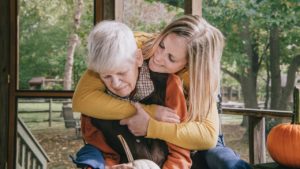Last week, I talked about the 10 “must know” memory loss warning signs. If you missed that episode, listen to this one, then go back and watch that one. Today I’m going to share the 5 steps to take if you’re worried that your loved one has memory loss.
Memory loss and memory problems that get in the way of daily life are NOT a normal part of aging. So, please take your concerns seriously by learning more about the 10 must know memory loss warning signs and which steps to take when you’re concerned.
Here’s a peak inside the episode:
- [02:17] Next Step #1: Write down your observations of memory loss incidents. Download the 10 must know memory loss warning signs checklist that I include in my memory loss guide and use it to help you keep track of your observations.
- [04:09] Next Step #2: The second step if you’re noticing signs of memory loss, is to pay attention to the timeline. Write down when you noticed these changes starting and any stressful events occurring at the same time.
- [05:40] Next Step #3: Share your concerns in a gentle and loving way. Let your loved one know that you’re concerned about them. It can help to gently share some of the specific examples of what you’ve been observing (from Steps 1and 2).
- [07:19] Next Step #4: Encourage your loved one to see their primary care doctor
- [10:52] Next Step #5: when you’re at the doctor and if you’re older loved one allows you to be in the room with them, don’t jump in and talk over your older loved one. Instead be respectful. Listen to the podcast to learn more about why this is so important.
- [13:07] BONUS Tips: Learn what to do if your older loved one is refusing to see their doctor and you’re very very concerned about them.
By the end of this episode, you’ll know exactly the steps to take if you’re concerned about memory loss in your older loved one and when to help them seek medical care.





